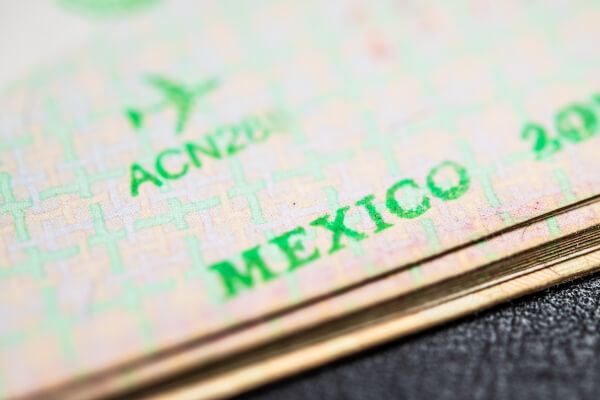How to Buy Commercial Property in Singapore: A guide for US businesses
In this US guide to buying commercial property in Singapore, navigate the process, costs, and unlock foreign investment opportunities with expert insights.

Standing for “international commercial terms,” Incoterms® are a set of rules defined by the International Chamber of Commerce (ICC). They’re designed to offer parties engaging in international commerce an established set of norms for which party – buyer or seller – is responsible for what.¹
DDP is one of the 11 Incoterms® rules, and in this guide you’ll learn all about what it means and what you need to know about it.

International transfer costs can really cut into the profit margins of a business.
That's why 7 million users are already using Wise, the new and clever way to send and manage money internationally.
Wise lets you send money for a low transparent fee using the mid-market rate, through their own network of local bank accounts. Money never crosses borders, fees stay low and you save cash.
Over 50 currencies to choose from
Local account details in the Eurozone, Poland, UK, Australia and New Zealand
Up to 19x cheaper than PayPal
No opening or maintenance fees
Integration with Xero

See if you could save with Wise
Among the Incoterms®, DDP stands for “delivered duty paid,” and it should be used alongside the place of destination – that’s an agreed place in the buyer’s country.
It’s the rule that hands most responsibility to the seller, and least to the buyer.
Under the DDP Incoterms® rule, the seller is responsible for:
The buyer doesn’t have to do any of that. Of course, the buyer will still have to pay for the goods, and their assistance may be needed when it comes to export or import formalities. But the responsibility for those formalities rests with the seller.
Once the goods are at the place of destination, the seller’s responsibilities end and the buyer assumes all the risk.
It’s important to note that, unlike several Incoterms® rules, DDP doesn’t stipulate about insurance: it isn’t a formal requirement for the seller to arrange insurance.² ³ ⁴ So, the buyer and seller will need to come to their own agreement about insurance, if the opt to use DDP.
The place of destination, or “named place” in Incoterms® jargon, can be wherever the buyer and seller agree. It will likely be the seller’s own premises, or another location near there.
The Incoterms® rules are updated by the ICC every decade or so, and the latest set of rules came out in 2020. There were a few significant changes to certain terms including FCA and CIP, but there weren’t any major adjustments made to DDP.
The previous set of Incoterms® rules was in 2010. It’s fine to use whichever set of rules you want, so long as the particular edition is clearly stated in the contract.
Any references you might see to Incoterms® 2015, Incoterms® 2016, Incoterms® 2017, and so on, aren’t accurate. The most recent updates to the rules have been in 2010 and 2020.⁵
A similar Incoterms® rule is DAP, which stands for “delivered at place.” It’s important to know the difference between DAP and DDP.
Just like with DDP, under DAP the seller has responsibility for getting the goods all the way to the named place. However, DAP gives the buyer one key responsibility: sorting out the import process once it’s arrived at the destination country’s port or terminal.⁶ ⁷
That’s a really important distinction. Import formalities can sometimes get complex and require detailed knowledge of that particular country’s rules and regulations. Many sellers won’t be in a position to provide all the necessary information themselves – at least, not without incurring delays and extra costs.
That’s one of the key problems with DDP, and a reason why DAP may be preferred instead. Often, the buyer will be better placed to handle import customs formalities.³ ⁴
DDP may still be a good choice, so long as the seller is able to handle everything smoothly. Still, it never hurts to have a decent understanding of all of your options, so don’t forget to read up on the full set of rules.
Learn More:
DDU Incoterms®: What You Need to Know
Sources:
1.International Chamber of Commerce (ICC) - Incoterms® 2020
2.AIT Worldwide Logistics - Incoterms DDP - Delivered Duty Paid
3.Incoterms Explained - Delivered Duty Paid (DDP)
4.Forto Logistics DDP Incoterm: Delivery Duty Paid Meaning and Freight Shipping Terms
5.ICC What are the key changes in Incoterms® 2020? - ICC
6.AIT Worldwide Logistics - Incoterms DAP - Delivered At Place
7.Incoterms Explained - Delivered At Place
All sources checked 24 May 2020
*Please see terms of use and product availability for your region or visit Wise fees and pricing for the most up to date pricing and fee information.
This publication is provided for general information purposes and does not constitute legal, tax or other professional advice from Wise Payments Limited or its subsidiaries and its affiliates, and it is not intended as a substitute for obtaining advice from a financial advisor or any other professional.
We make no representations, warranties or guarantees, whether expressed or implied, that the content in the publication is accurate, complete or up to date.

In this US guide to buying commercial property in Singapore, navigate the process, costs, and unlock foreign investment opportunities with expert insights.

Learn the essentials of how to invest in commercial property in the UK as a US investor.

Discover how to invest in commercial property with our comprehensive guide.

Learn how to hire independent contractors in Canada. Understand legal rules, tax responsibilities, and how to avoid misclassification with this guide.

Learn how to hire independent contractors in Brazil. Understand tax rules, compliance, contracts, and how to avoid misclassification risks.

Learn how to hire and pay independent contractors in Mexico. This article also includes an FAQ and best practices about working with contractors in Mexico.